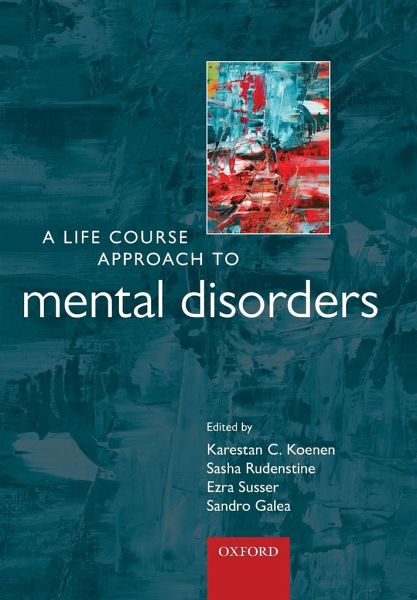
LIFE COURSE APPR MENT DISORD LCAAH
P P
Versandkostenfrei!
Versandfertig in 1-2 Wochen
117,99 €
inkl. MwSt.

PAYBACK Punkte
59 °P sammeln!
A Life Course Approach to Mental Disorders examines the causes and consequences of a wide-range of mental disorders throughout life, from the peri-natal period through old age.




